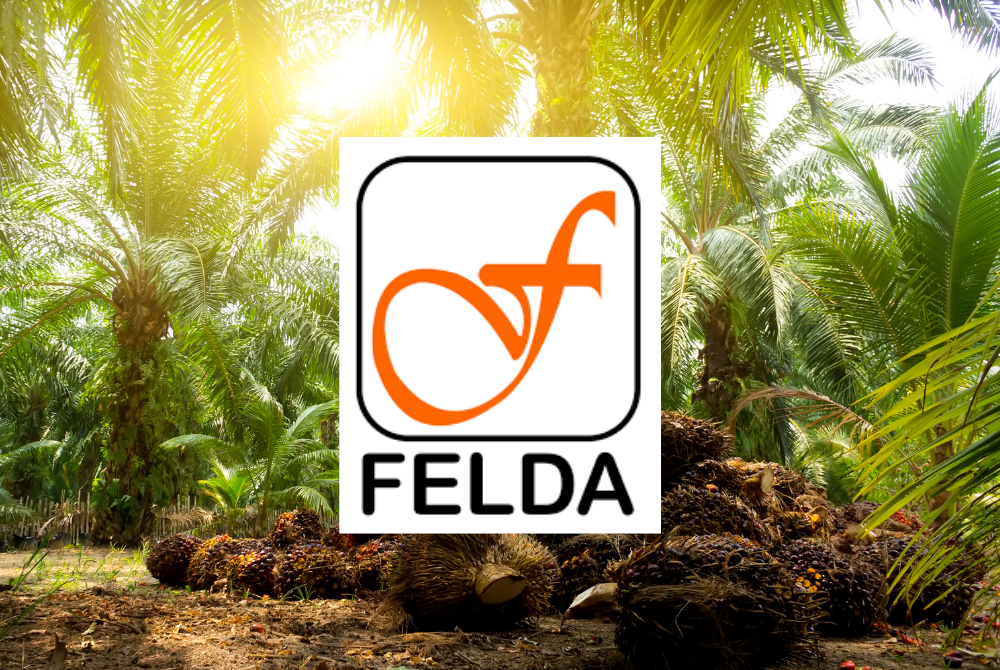Felda has come a long way, set to rebound once again
ZAIDI ISMAIL
In 1956, the then Malaya was very much impoverished, and a majority of its people were living below the poverty line.
The Bumiputera were largely simple village folks and most lived in abject property.
The late prime minister Tun Abdul Razak Hussein then devised an ingenuous plan to lift the Bumiputeras out of poverty.
Subsequently, he devised a land scheme comprising oil palm plantations spanning across some 800,000 hectares nationwide.
A total of 100,000 smallholders became instant landowners each managing 3, 4 acres of land.
Managed by the Federal Land Development Authority, or more affectionately known as Felda, the land scheme grew leaps and bounds.
Felda singlehandedly eradicated the country's poverty situation in the late 1970s and 1980s due to the booming palm oil prices.
And today, Felda is recognised as a successful poverty mitigation programme by its peers such as in Indonesia.
The birth of FGV
Such is Felda's success that the land authority became a giant plantation clout both in the country and the world.
Felda is now one of the world's most influential commodity giant and it has propelled Malaysia to become the world's second largest palm oil producer after Indonesia.
To elevate Felda's position further, the agency established Felda Global Ventures Holdings Bhd or more popularly known as FGV.
FGV is the commercial arm of Felda tasked to boost profitability for its parent, shareholders as well as the smallholders.
Felda is set to soar even higher with FGV as the jewel of its crown.
Buoyed by its success, Felda decided to list FGV on Bursa Malaysia in 2012.
It was a proud moment for the country's 100,000 smallholders and their second and third family generation.
"It was an opportunity for us smallholders to own FGV shares and be part of a global company," smallholder Kamal Abdul Karim told Sinar Daily.
And for the next two to three years after its listing in 2012, everything was hunky dory for FGV until the politicians started to meddle.
The downward spiral
By right, companies which are listed on Bursa should grow in revenue, profit and shareholders' value.
FGV however began its downward spiral ever since its listing of which its share prices dived to its lowest levels of RM1 and the concern started to chalk in losses.
Felda prides itself in consistently registering RM2 billion and RM3 billion in profit annually in tandem with crude palm oil prices.
It all changed when politicians such as Tan Sri Isa Samad entered the fray.
Dubious projects and shenanigans began to plague Felda such as the dubious sturgeon project as well as the sale of a hotel in Sarawak at inflated prices, of which Isa Samad was found guilty of floundering RM3 million.
And then there was the purported sale of Felda headquarters in Jalan Semarak, Kuala Lumpur which was inked surreptitiously.
It just turned from bad to worse for Felda forcing the government to inject funds to ensure its survival.
Understandably, Felda settlers warrant the utmost priority and attention by the government as it garners a large number of parliamentary seats.
The political play is obvious and Felda is a victim of political manoeuvering.
Hence its relevance in the country's political and socio economic landscape cannot be denied.
FGV on the rebound
Finally, after years of struggling, there is indeed light at the end of the tunnel.
CPO prices surged to an all time high of RM8,000 no thanks to the Russia-Ukraine war.
FGV’s net profit for the financial year ended December 31, 2021 soared to RM1.17 billion from RM146.16 million a year ago, while revenue jumped by 39 percent to RM19.58 billion from RM14.08 billion previously.
The group announces a final dividend payment of eight sen per share, translating to a total dividend pay out of RM271.4 million.
It's share prices have doubled to RM2 and all eyes are on the stock to see whether it can return to the IPO level of RM4.55.
"It remains to be seen whether FGV shares can clamber back to the RM4.55 level but it all hinges on prevailing CPO prices.
The higher the CPO prices are, the better it will be for FGV and Felda," former FGV group chief executive officer Datuk Zakaria Arshad told Sinar Daily.
Challenges remain ahead
Even though things are looking up for Felda and FGV, the giant is not averse to challenges.
Some of its age old challenges include aging oil palm trees and high cost of production.
It will be tough for the Felda management to persuade the smallholders to replant their oil palm trees now at a time when CPO prices is at an all time high.
But once CPO prices comes down, smallholders should seriously think about replanting to ensure a bountiful harvest in the future.
As for now, Felda and FGV can look forward to return to its glory days once again.










